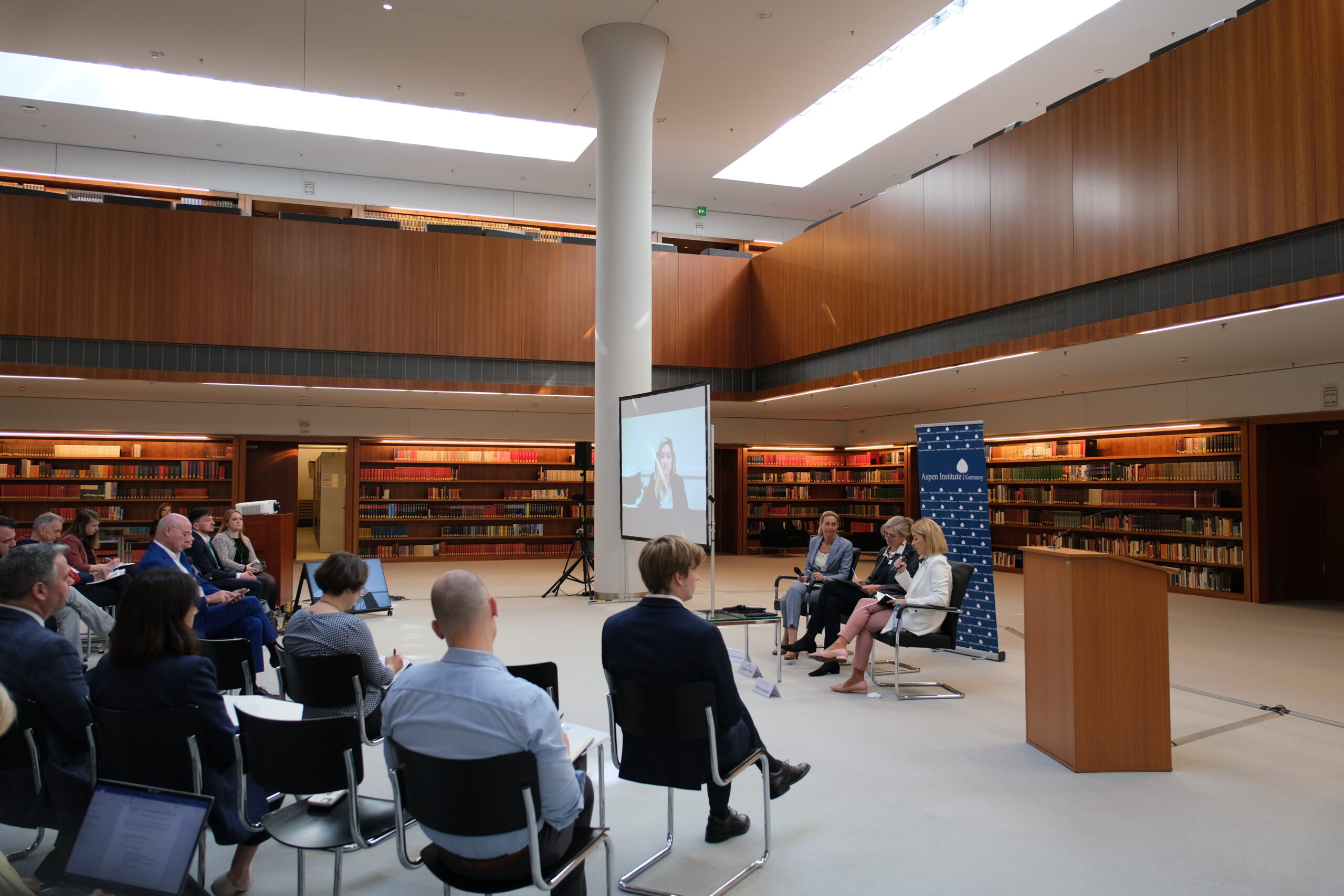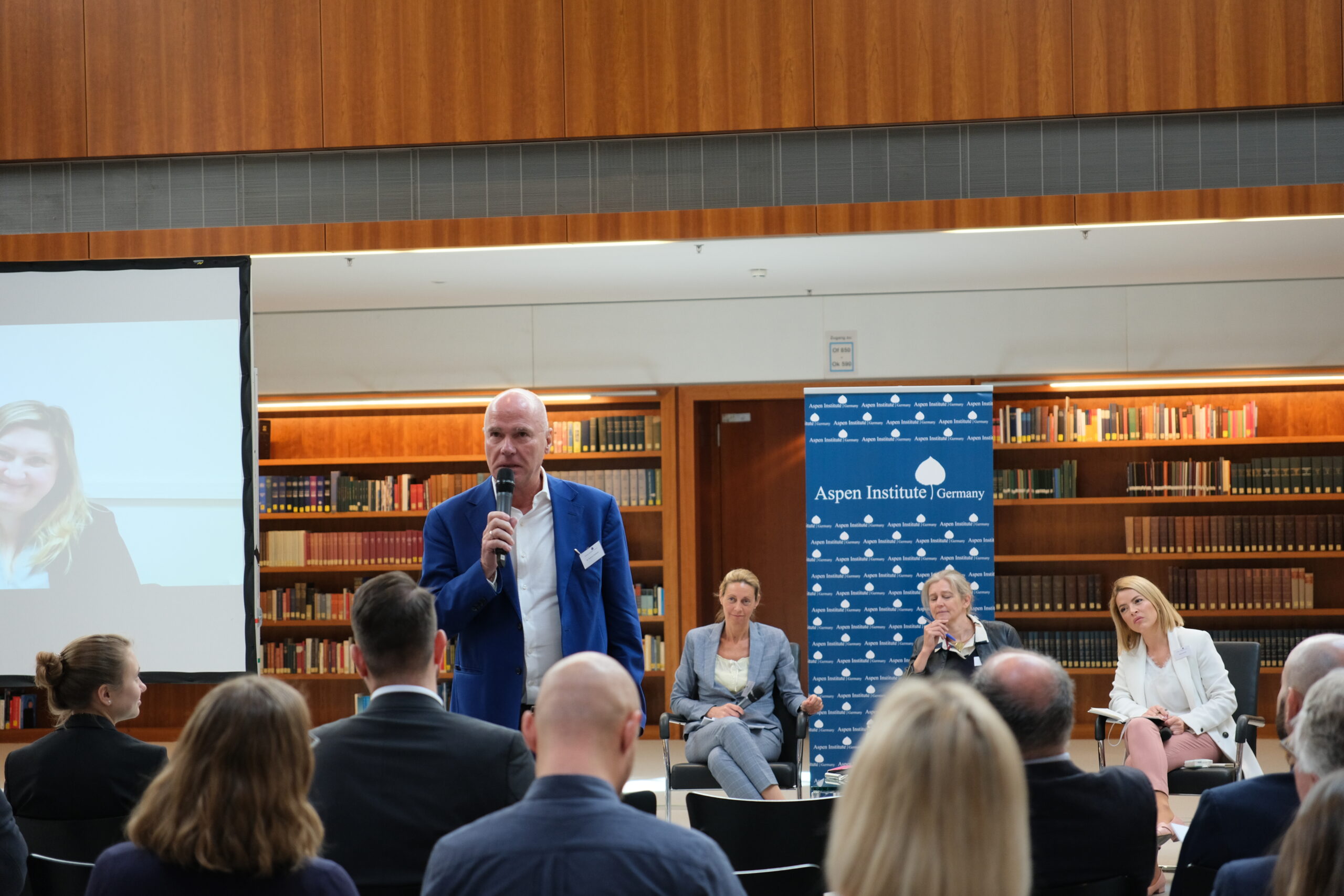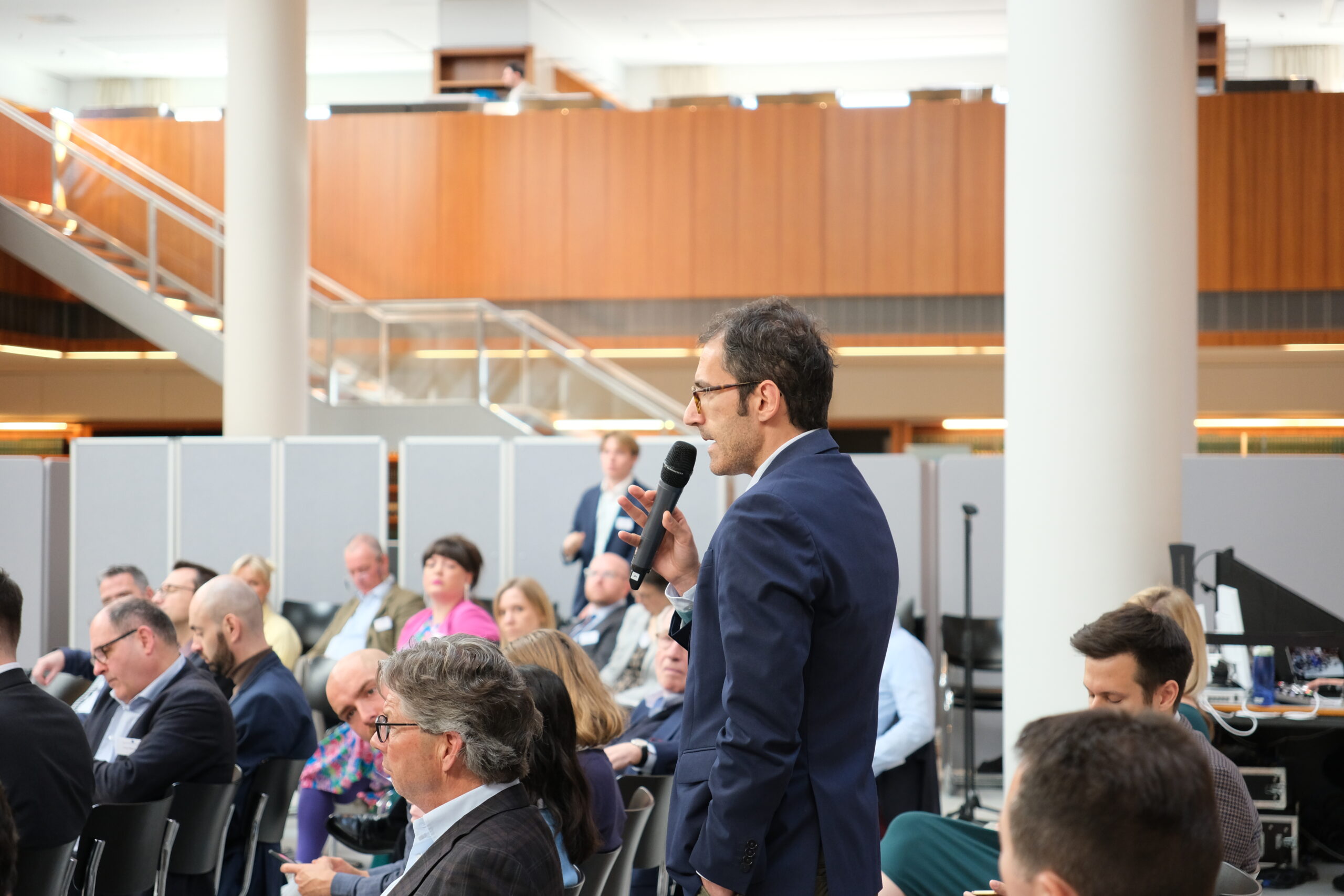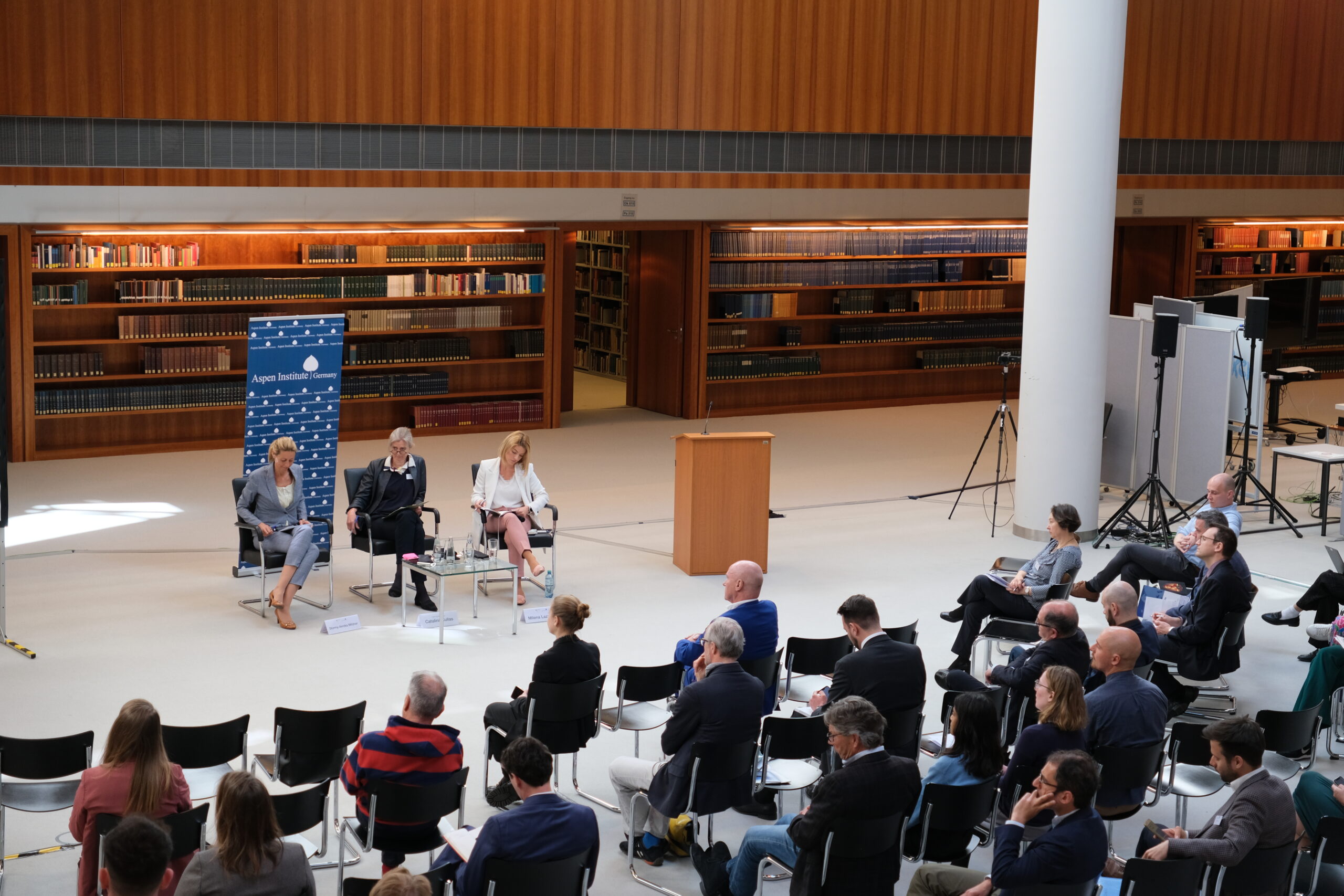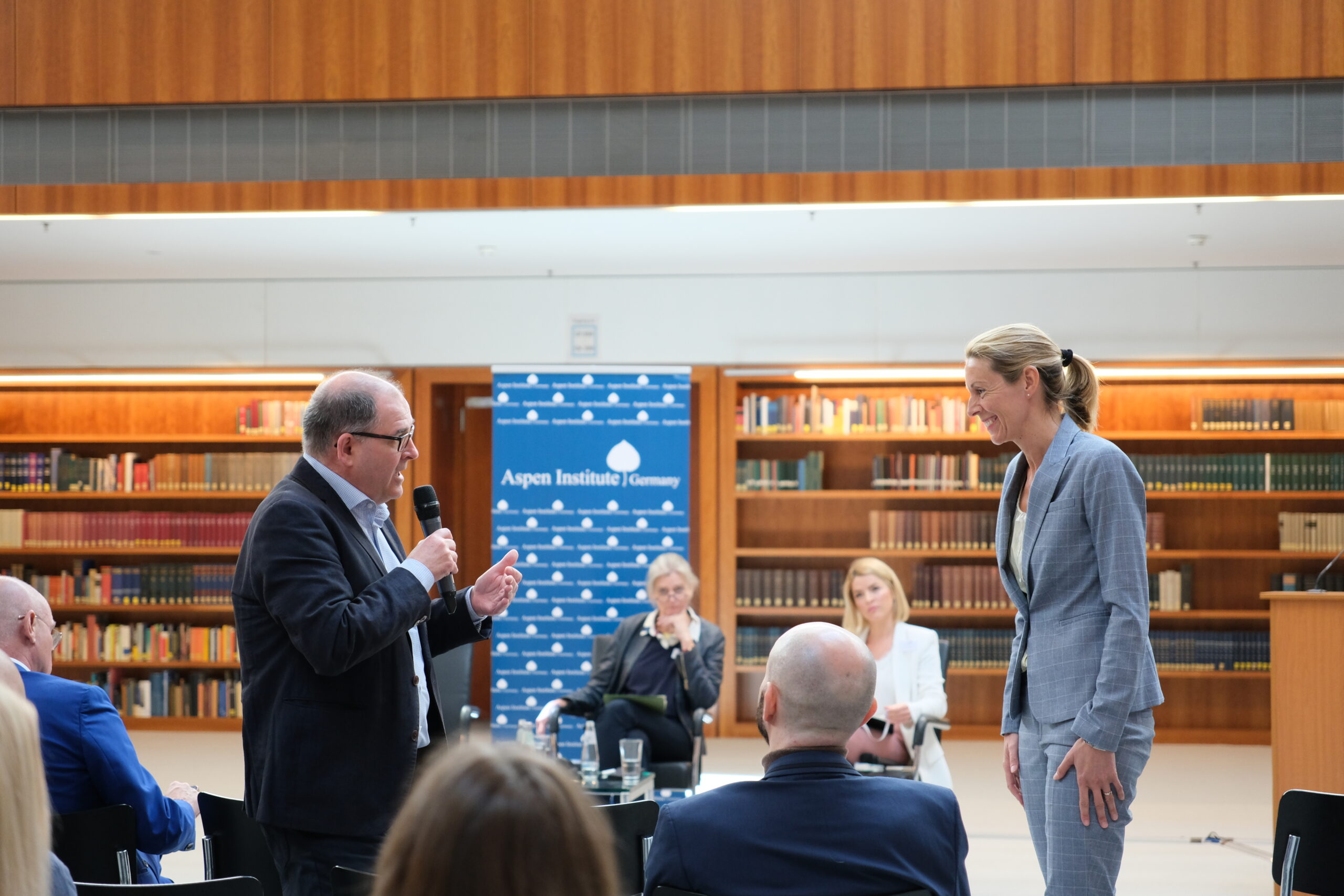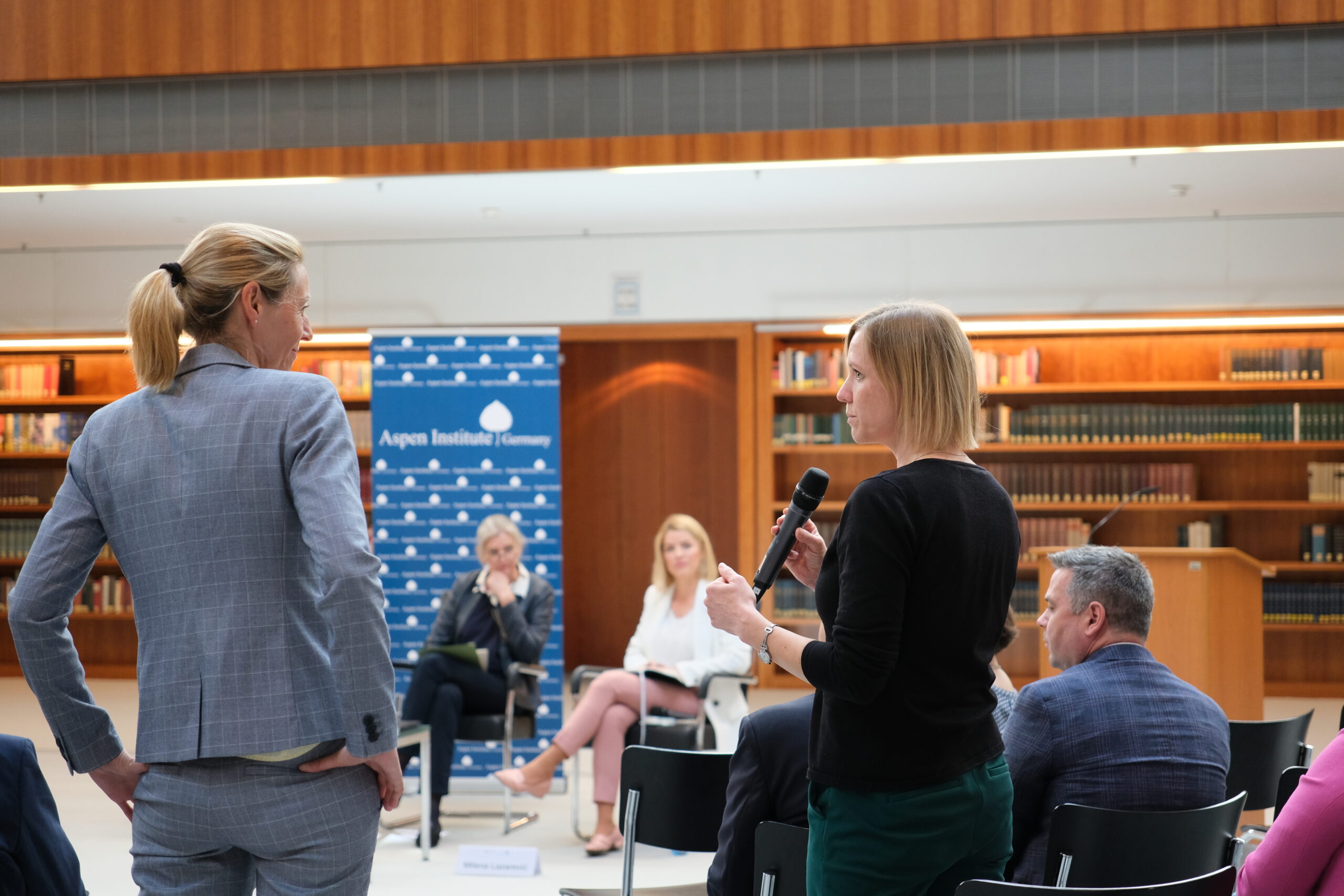- May 09, 2023
- -
- May 09, 2023

On May 9, 2023, the Aspen Institute Germany, in cooperation with the German Foreign Office, organized a panel discussion titled “Zeitenwende of the EU Enlargement – How to Boost the Process?”. The panel featured Ambassador Catalina Cullas, Director for Relations with EU Member States, Cross-Border and Regional Cooperation, EU External Affairs Divisions E 21-E 25, German Federal Foreign Office; State Secretary for European Integration Stela Leucă, Ministry of Foreign Affairs and European Integration of the Republic of Moldova; and Milena Lazarević, Programme Director, European Policy Centre. The discussion was moderated by Dr. Stormy-Annika Mildner, Executive Director, Aspen Institute Germany.
The Russian war of aggression in Ukraine has significantly changed the geopolitical situation in Europe. In the past year, the geopolitical awakening of the EU has also led to a new dynamic in the enlargement process: the European Council added Ukraine and Moldova to the list of candidate countries in June, Albania and North Macedonia started accession negotiations in July, Bosnia and Herzegovina was granted EU candidate status in December, and Kosovo submitted an application for European Union membership in December. Nevertheless, these countries still have their way to go.
The developments during the last year raise a series of questions: What effects does the war in Ukraine have on the EU integration processes? Does the EU’s geopolitical awakening give new impetus to the EU integration process? Will the EU enlargement process change as a result of Ukraine and Moldova being granted candidate status? How can enlargement be re-energized within the EU? How can the momentum be maintained without undermining the accession criteria? How can the countries be supported in implementing the reforms and what role should Germany and the EU play in this process?

